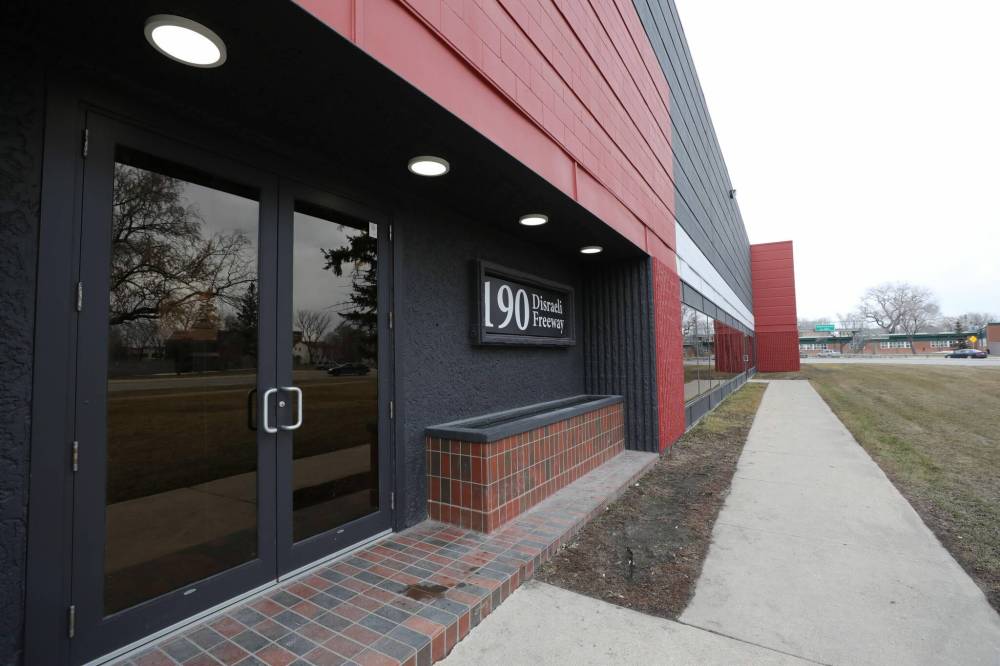Serial killer told shelter staff member near-daily visits were to ‘stalk his victims,’ court hears
Advertisement
Read this article for free:
or
Already have an account? Log in here »
To continue reading, please subscribe:
Monthly Digital Subscription
$0 for the first 4 weeks*
- Enjoy unlimited reading on winnipegfreepress.com
- Read the E-Edition, our digital replica newspaper
- Access News Break, our award-winning app
- Play interactive puzzles
*No charge for 4 weeks then price increases to the regular rate of $19.95 plus GST every four weeks. Offer available to new and qualified returning subscribers only. Cancel any time.
Monthly Digital Subscription
$4.99/week*
- Enjoy unlimited reading on winnipegfreepress.com
- Read the E-Edition, our digital replica newspaper
- Access News Break, our award-winning app
- Play interactive puzzles
*Billed as $19.95 plus GST every four weeks. Cancel any time.
To continue reading, please subscribe:
Add Free Press access to your Brandon Sun subscription for only an additional
$1 for the first 4 weeks*
*Your next subscription payment will increase by $1.00 and you will be charged $16.99 plus GST for four weeks. After four weeks, your payment will increase to $23.99 plus GST every four weeks.
Read unlimited articles for free today:
or
Already have an account? Log in here »
Hey there, time traveller!
This article was published 15/05/2024 (603 days ago), so information in it may no longer be current.
Confessed serial killer Jeremy Skibicki was a near-daily fixture at a Winnipeg homeless shelter, telling a staff member he went there to “stalk his victims,” a court heard Wednesday.
Skibicki “didn’t fit in” with other regular attendees at the 190 Disraeli Freeway shelter, said staffer Ronald Normand.
“His clothes were clean, (he was) well-shaven, taken care of,” Normand said of Skibicki, telling court he visited the shelter “almost daily” from early afternoon, remaining into the evening.
“To me, it looked like he was looking for somebody, walking around the shelter, looking at people,” Normand said.
RUTH BONNEVILLE / FREE PRESS FILES Court heard Wednesday that Jeremy Skibicki was a near-daily attendee at the 190 Disraeli Freeway homeless shelter, and that he told a staff member he went there to “stalk his victims.”
On one occasion, Skibicki approached Normand and said “he didn’t need to be there, he had his own place, he was just there to stalk his victims,” Normand testified.
“You see people go through psychosis and stuff, I hear stuff every day, but that stood out to me,” said Normand.
Skibicki, 37, has pleaded not guilty to four counts of first-degree murder in the May 2022 slayings of three Indigenous women — Rebecca Contois, Morgan Harris and Marcedes Myran — as well as a fourth still-unidentified woman police believe was slain in March 2022 who has been given the name Mashkode Bizhiki’ikwe (Buffalo Woman) by Indigenous elders.
Skibicki has admitted to killing the women but is arguing he should be found not criminally responsible by reason of mental disorder. In a police interview video recorded after his May 17, 2022 arrest, Skibicki admitted strangling or drowning the victims in his McKay Avenue apartment and then disposing of their remains in nearby garbage bins. Skibicki said he dismembered Contois and Myran in the bathtub with a combat knife.
He told police he had been diagnosed with borderline personality disorder and post-traumatic stress disorder and that he had been consuming meth prior to killing three of the women.
Normand said he never saw Skibicki under the influence of drugs or in a psychotic state.
After learning of Skibicki’s arrest, Normand called police to report what he knew about the suspect. He told investigators that Harris, a shelter “regular,” hadn’t been around lately.
“We try to keep an eye on (the regulars), especially if they are going through psychosis or mental-health issues,” Normand told court.
Skibicki’s arrest came one day after a man searching for scrap metal around 5:30 a.m. found Contois’ head in a plastic bag in a garbage bin on Edison Avenue, a short distance from Skibicki’s apartment suite.
“You see people go through psychosis and stuff, I hear stuff every day, but that stood out to me.”–Robert Normand
In earlier testimony Wednesday, court heard from three apartment building neighbours about Skibicki’s activities prior to his arrest.
Allan Mackay was “sound asleep” when sometime between 2 a.m. and 2:30 a.m. on May 16, he heard someone “running up and down the stairs with his boots on,” and a slamming door.
“I thought, what’s going on here?” Mackay told court. “I thought someone broke in or something.”
Mackay, who lived on the main floor, said he opened his suite door to see a pair of boots on the stairwell and Skibicki, his upstairs neighbour, coming down the stairs carrying two wastepaper baskets.
“I said: ‘What are you doing?’ He said: ‘I’m getting rid of garbage.’ I said: ‘Well, do it in the daytime, people have to go to work in the morning.’”
Mackay said he could not see the contents of the baskets.
Mackay sent an email to his landlord complaining about the noise before returning to bed.
He said Skibicki removed his boots and could be heard making at least two more trips in and out of the building in his stocking feet before Mackay fell asleep.
Sometime around mid-April 2022, a woman knocked on his apartment window, asking to be let in so she could see Skibicki, whom she identified as her cousin.
Mackay let the woman in, but Skibicki wasn’t home, he said, so he invited the woman to his suite for coffee until Skibicki returned about 30 minutes later.
Mackay described the woman as “a very pleasant lady,” between 30 and 35 years of age, and said she told him she had recently had a baby. Mackay said the woman was not the same woman (Contois) pictured in news reports around the time of Skibicki’s arrest.
Allen Cohan, another apartment neighbour and the building’s caretaker, said he looked out his window the evening of May 16, 2022, and saw Skibicki with an “armful of clothes.”
Cohan, who earlier that evening had rolled out several garbage bins to the laneway for pickup the next morning, said he saw Skibicki walk toward an empty garbage bin on the side of the apartment building, drop the clothes inside, and then roll the bin to the laneway with the other bins.
Cohan described the clothing as “loose sweaters, jeans or leggings, that sort of stuff.”
Court has heard clothing items, including running shoes belonging to Contois and Harris, were found in garbage bins outside Skibicki’s apartment.
Next-door neighbour Richard Patkau shared a wall with Skibicki’s bathroom. Patkau told court he woke up at 1:40 a.m., May 15 to use the washroom and could hear Skibicki running the shower. Patkau said he was awake at 5:45 a.m. when he heard Skibicki’s shower running again for approximately 10 minutes, and then again at approximately 7:45 a.m. and 9:45 a.m.
“By that time, I’m thinking something is very strange,” he said.
The pattern would repeat itself two more times, with Skibicki running the shower for the last time just before noon, Patkau said.
dean.pritchard@freepress.mb.ca

Dean Pritchard is courts reporter for the Free Press. He has covered the justice system since 1999, working for the Brandon Sun and Winnipeg Sun before joining the Free Press in 2019. Read more about Dean.
Every piece of reporting Dean produces is reviewed by an editing team before it is posted online or published in print — part of the Free Press‘s tradition, since 1872, of producing reliable independent journalism. Read more about Free Press’s history and mandate, and learn how our newsroom operates.
Our newsroom depends on a growing audience of readers to power our journalism. If you are not a paid reader, please consider becoming a subscriber.
Our newsroom depends on its audience of readers to power our journalism. Thank you for your support.
History
Updated on Wednesday, May 15, 2024 8:28 PM CDT: Corrects spelling of witnesses first name

















